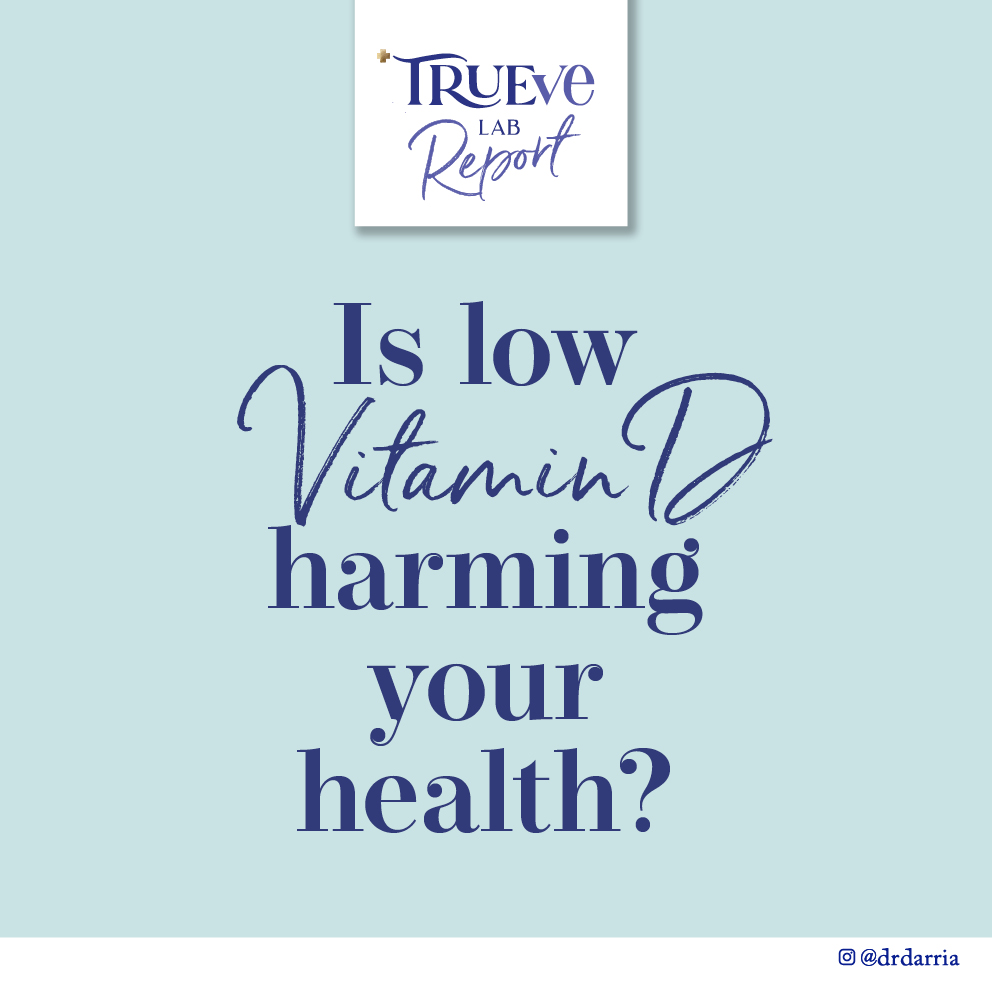Do you need to take Vitamin D?
“Get plenty of sun for healthy Vitamin D levels!” vs. “Don’t go out without SPF or you’ll get skin cancer!”
“Everyone’s Vitamin D is low!” vs. “Don’t take too much, it’s harmful!”
Why does it matter? Deficient Vitamin D increases our risk of infection and hospitalization and respiratory illness, raises total mortality risk, increases risk of autoimmune conditions, and even can worsen mental health diagnoses. (But on the flip-side, per recent news, TOO much Vitamin D is harmful. Yep. too much of a good thing is NOT always a good thing).
Clear as mud? Getting Vitamin D right can feel as impossible as walking a tightrope.
Fortunately, that’s not as hard as it may seem (compared to the many complex things we do in medicine). Finally! Something simple! We dove in to set the record straight.
Quick summary: Do you need to take vitamin d?
(read ON below the list FOR Full Report)
- New Vitamin D Mentality: Aim for TARGETED SUPPLEMENTATION, not GENERALIZED SUPPLEMENTATION.
- Gone are the days that we should recommend that “Every adult take xxx dose per day”. There is no “one-size-fits-all” Vitamin D dose. Instead, adults should find out their Vitamin D level, and increase intake accordingly. That’s the best way to reach an optimal level.
- Get tested to find out your level (at your doctor or via at-home tests such as EverlyWell.com or LetsGetChecked.com)
- Current medical recommendations (of 20-30ng/ml) are TOO LOW. For optimal health, aim for a Vitamin D level of 45-60 ng/ml (or 112-150 mmol/L). (REMEMBER and SAVE this value. It’s important and NOT the same “normal range” everywhere)
- Take Vitamin D As Needed Based on Your Level
- SUN: 15 minutes of sunscreen-free time in the sun between 10-2pm daily – easier to do now that we’re in summer! (not only do you get Vitamin D here, but the extra outdoor time also resets your Circadian Rhythm AND boosts mood – triple win). (NOTE: this may be enough for light-skinned individuals in summer; in winter or for darker skinned individuals or other groups (see below for more details), you’d likely need to supplement.
- FOOD: More vitamin D rich foods (list below)
- SUPPLEMENTS: Take a Vitamin D supplement as needed (starting at about 2,000 IU is a good general bet, but read specifics below).
Re-check in 3 months. If your levels aren’t increasing enough, talk to your doctor about best recommendations (or if they increased too much, about how much to decrease supplementation).
Got infants and children? Many infants and children will also need a Vitamin D supplement, especially exclusively breastfed infants, formula-fed but who drink less than 32 ounces a day, and many older children. (recommendations below).
Do NOT take Vitamin D mega-doses without your doctor. Don’t take doses of more than 5,000-10,000 IU / day, without the close guidance of your doctor.
FULL TRUEVELAB REPORT: do you need to take vitamin d
Why Are Current Recommendations Wrong?
- They focus solely on bone health – but Vitamin D is important for our immune system, autoimmunity, mental health, and even our lifespan – but typically at higher levels than required for bone health.
- They focus on deficiency, not optimization. Most recommendations are based on “not being deficient”, (i.e., SO low that body processes literally cannot function). That’s because that’s easier to prove than “optimal” levels, which would require following tens of thousands of people for decades, and essentially be impossible.
- Their recommendations are too generic – and not individualized. Asking “How much Vitamin D should everyone take” is what’s asked (in part because that’s easiest to study). But that’s the wrong question – because how we metabolize Vitamin D (and how much we need) is personal. Instead, we should focus on individual levels as targets.
These factors make finding “optimal” levels of Vitamin D more complex – but something that we can absolutely do (and did for this report).
What Vitamin D level do health experts recommend?
It depends on who you ask. The NIH recommends 20ng/ml or more, while The US Endocrine Society and UK NHS recommend 30 or higher.
Clear as mud – and, all too low.
What optimal Vitamin D level do we recommend?
Aim for a Vitamin D level of 45-60 ng/ml. (KEY: sometimes tests are in mmol/L. Look for levels in ng/ml, so you don’t get confused).
Some people may need higher, some may be able to get by just fine with lower – but this seems to be the level for optimization, in general.
How do you find out your Vitamin D Level?
Two options to get tested:
- Have your doctor order the test (it’s a simply blood draw and no fasting required)
- Order an at-home test, via EverlyWell or LetsGetChecked
***Make sure to re-check your levels 3 months after changing your intake.
Why Do we need Vitamin D?
You’ve likely heard about Vitamin D being crucial for bone health – but it’s importance actually goes far beyond that.
- Immune System: Vitamin D plays an important role to both promote a robust and efficient immune function. Researchers have found that white blood cells (a type of immune cell) have Vitamin D receptors. Research has also showed that daily Vitamin D supplementation reduces the risk of acute respiratory infections like the cold and flu in all ages, and flu in schoolchildren (and the parents of the world cheered!). Low Vitamin D levels were also associated with higher risk of COVID infection and more severe infection , and increased mortality (although this hasn’t been fully established as the cause, or an association).
- Autoimmune Conditions: At the same time that Vitamin D supports a healthy immune response, it appears to regulate it – and tempers a hyperactive one (ie autoimmune conditions). One study showed that administration of Vitamin D led to a lower risk of autoimmune conditions.
- Overall mortality: When looking at all-cause mortality, including conditions such as diabetes and cancer, there appears to be an optimal level, around 50-60 ng/ml.
- Mental Health: There’s very interesting research here – see below.
Does low Vitamin D Harm Mental health?
There’s a LOT of disagreement, depending on how various studies are run, but some key conclusions that we can draw:
From observational studies: Vitamin D does appear to be present at lower levels in people with severe depression, psychotic features, or feelings of suicide – although they couldn’t claim whether it CAUSED these
From Interventional Studies:
- Vitamin D supplementation to raise levels increases wellbeing scores in depressed adolescents, women with PCOS, and pregnant women.
- Those most likely to be helped are people with very low Vitamin D levels, and/or very severe clinical symptoms (such as clinical depression).
- Treatment typically requires at least 8 weeks.
How does Vitamin D affect mental health? Not entirely clear, but possibly due to it’s impact on reducing inflammation, or on the dopamine and serotonin pathways.
Does your infant / child need to take vitamin D?
- Many infants also need Vitamin D.
- According to the American Academy of Pediatrics, exclusively or partially breastfed infants need Vitamin D supplementation, as would infants on formula drinking less than 32 ounces per day. They recommend 400 IU/day for babies less than 1, and 600 IU /day for babies older than 1.
- Many children also need Vitamin D supplementation.
- Several studies from the American Academy of Pediatrics have noted that less than 30% of children have adequate Vitamin D levels (with numbers even higher in minorities).
- TrueveLab advisor and pediatrician Dr. Tanya Altmann states “Almost everyone needs supplemental vitamin D. Depending on an infant or child’s age and how much vitamin D fortified formula, milk or other beverage they are drinking your pediatrician may recommend an extra supplement. Typically in my patients I recommend from 400 IU a day up to 2000 IU depending on age and medical history. If a vitamin D level is checked for chronic illness or other reason and it is low, I may even need to use higher in a teen.”
Best Ways to Increase Vitamin D Level
- Get 10-15 minutes sunlight a day, between 10a – 3pm.
- For some people, this sunlight will be adequate in the summer months, while others will need to supplement (and most will need to supplement in the winter months). Note that I’m saying TEN minutes, not a 2-hour tanning sesh.
- Eat foods high in Vitamin D – remember – it’s the cumulative dose of sun + food + supplements, such as fatty fish (salmon, trout, sardines), fortified dairy (and non-dairy fortified milks), eggs, and some mushrooms.
- Start a Vitamin D3 Supplement
- If you think you may be low, start a supplement while awaiting test results.
- Take D3 (cholecalciferol), not D2 (ergocalciferol).
- We recommend adults start at 2,000 IU Vitamin D3 / day, and then adjust in discussion with your doctor based on test results.
- Don’t take mega-doses (especially 10,000 IU / day, or more than 5,000 IU / day for prolonged periods) without the guidance of your doctor. Some people need higher doses, but in most, doses this high would yield marginal benefit, while increasing risk of excess levels.
- Consider supplementing with magnesium if your Vit D levels are low.
- The connection between Vitamin D and Magnesium is often overlooked, but adequate Magnesium is crucial to activating Vitamin D
Vitamin D – one of those nutrients that doesn’t have to be confusing. In fact, if we make it simple, it’s a beautiful thing – because it’s relatively easy to identify, AND remedy.
Find out your levels, aim for 45-60 ng/ml and up your intake accordingly.
When was the last time you had your Vitamin D levels checked?
****REALLY want to nerd-out with me? Check out even more juicy science-y details below.***
Do we need to worry about toxicity?
It’s possible to get toxicity from any vitamin – especially fat-soluble ones like Vitamin D (and A, E, and K). We do see toxicity in Vitamin D, however, it’s typically in the range of greater than 100 ng/ml. At that level, patients develop hypercalcemia, or calcium levels that are too high. Symptoms of that can include confusion, vomiting, muscle pain and weakness, kidney stones, and even thinning of the bones. (You may have heard of a recent case in the UK, where a man was hospitalized because he was taking 150,000 IU of Vitamin D daily– which is 30x higher than what we recommend anyone doing without a physician’s guidance.
That’s why we recommend 45-60 ng/ ml – it puts you in the optimal range, with a large buffer between that and potentially toxic levels. It’s also why we never recommend mega-doses, without the close guidance of your doctor and periodic levels checked.
Should we take mega-doses?
Not on your own, without checking levels. Some people WILL need higher doses due to genetic predisposition, skin color, medications, or other health conditions. But in those cases, that should be because they’ve been supplementing without sufficient improvement, and doses are increased, and levels re-checked.
Not only is it not safe (see toxicity, above), taking mega-doses, for many people, won’t even help. At first, for every additional thousand IU of Vitamin D you take, your body levels of Vitamin D will likely increase by about 5 ng/ml. But as you start to take multiples of that – say 15,000-20,000, the benefit starts to wane, with only marginal lift to your levels. Plus, that also potentially puts you at the risk of higher levels, which can at very high levels reach the risk of toxicity. So, you’re better off taking a measured, steady dose over 3-6 months and re-checking levels than trying to boost with mega-doses.
Some interesting other stuff, if you're a science-nerd like me:
Like many nutrients, doing a double-blinded, placebo, randomized controlled trial would take tens of thousands of people, you’d have to study them for decades, draw their blood periodically, and calculate their intake of Vitamin D from the sun, food, and supplements, to be able to draw any conclusions on “optimal” levels.
In cases such as this, as True Health Initiative founder (and TrueveLab advisor) Dr. David Katz told me (who has an amazing blog and makes for fascinating conversation) multiple studies have shown that our “optimal” levels are highly concordant with what the native intake of our paleolithic ancestors, in addition to evidence in current clinical studies about levels associated with better wellbeing in a variety of conditions.
- Darker skin (it requires more UV exposure for their body to activate Vitamin D).
- Older age
- Obesity
- Living at higher latitudes (since they likely get less sun exposure)
- Pregnancy (can cause maternal vitamin D deficiency)
- Certain medications, such as anti-seizure drugs and steroids, among others
Lately, the interwebs have been abound with some health influencers saying that we must also take Vitamin K, along with Vitamin D. The real evidence? A mixed bag. Some studies have shown a benefit to joint supplementation, others have shown no benefit at all. Plus, some of the studies “supplemented” Vitamin K via foods reach in it.
We suggest – best for now is to simply get adequate Vitamin K in your diet (1 cup of spinach has 150% of your daily recommended amount). If you do take a supplement with K2 in it, opt for a dose of no more than 90-100 mcg, and speak with your doctor before supplementing Vitamin K, as it can interact with some medications.
All my best,
- Dr. Darria









